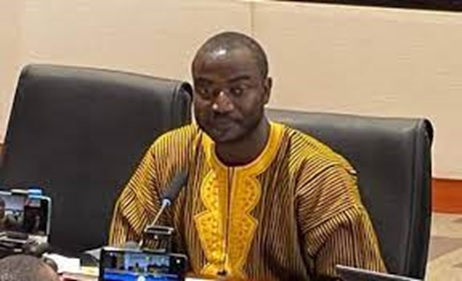MONROVIA, LIBERIA – Rep. Yekeh Kolubah, a vocal critic of the Unity Party-led government, has expressed his displeasure with the management of the Liberia Broadcasting System (LBS) under Director-General Eugene Fahngon for denying the opposition Coalition for Democratic Change (CDC) the opportunity to broadcast a jingle. Rep. Kolubah of District #10, Montserrado County, has formally written to Speaker Cllr. J. Fonati Koffa to summon Fahngon over the denial.
In his letter dated June 25, 2024, Rep. Kolubah stated, “It has come to our attention that the management of the Liberia Broadcasting System (LBS) has started to deny citizens the usage of its facilities because of their links as opposition. The case in point is the denial of the Congress for Democratic Change (CDC) from paying for airtime to play their jingles.” He emphasized that LBS, as a government property, must adhere to Article 15(d) of the Constitution of Liberia, which asserts that access to state-owned media should not be denied due to disagreement with the ideas expressed.
Rep. Kolubah argued that this restriction is a violation of constitutional rights and urged the House to invite the management of LBS to explain their decision. He warned against political rivalry and stressed the need to uphold democratic standards to avoid further division in the country.
During a press conference at CDC headquarters in Monrovia on Tuesday, June 25, 2024, Mamensie Kabba, the CDC’s Assistant Secretary for Press and Propaganda, voiced her disappointment. She claimed that the refusal to broadcast their jingles for the upcoming militants-day celebration was both unconstitutional and unruly. Kabba criticized Director-General Fahngon for blocking the CDC’s access to the state broadcaster, ELBC.
Fahngon confirmed his decision to deny the CDC airtime, explaining that the jingle promoted militancy and requested the opposition party to edit the content before it could be aired. The CDC refused to comply with this request.
The controversy surrounding the jingles is not the first instance where Fahngon’s actions have sparked debate. During a recent government retreat, Fahngon proposed that LBS be used exclusively for government-related issues, effectively excluding opposition voices. President Joseph Boakai swiftly rejected this proposal, asserting that LBS should remain a platform accessible to all Liberians.
Fahngon, known for his combative demeanor, previously served as Deputy Minister for Press and Public Affairs at the Ministry of Information under the former ruling CDC. His tenure was marked by threats against journalists and strained relations with media institutions. After resigning from the CDC, Fahngon became a critic of the Weah-Taylor administration during the 2023 presidential election. His appointment as Director-General of LBS was seen as a reward for his loyalty and support for Boakai during the election.
The CDC’s allegations against Fahngon highlight ongoing tensions between the government and opposition parties regarding media access and freedom of expression. As Liberia continues to navigate its political landscape, the role of state media and the importance of maintaining an open platform for all voices remain critical issues for the country’s democratic development.
In response to these developments, civil society groups and media watchdog organizations have called for an independent investigation into the operations of LBS. They argue that ensuring fair access to state media is essential for maintaining a healthy democracy and preventing the misuse of government resources for partisan purposes.
Meanwhile, the broader political community is watching closely to see how this dispute will unfold. Many believe that the outcome will set a precedent for how media freedom and political expression are handled in the country moving forward, potentially impacting the country’s approach to democratic governance and civil liberties.







